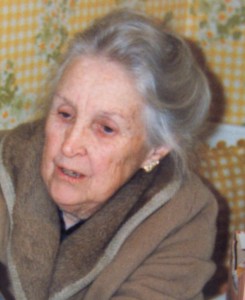Is it possible to live without regrets? Probably not. All of us are pros at looking backwards and playing rounds of would-have, could-have and should-have. Regret comes naturally. The trick is facing forward to play the would-do, could-do and should-do game.
When I think of Nate, particularly of his last year as he suffered so much back pain and then cancer pain, I often wonder if he had regrets. I can’t imagine he did, because in my opinion, he suffered well, taking the high road and carrying his miserable assignment without complaint.
As for me, I have a bucket full of regrets and if-only’s. I try not to play those games, but sometimes they taunt me like a school yard bully.
I think often of my mom, who was a fun-loving, happy-go-lucky person who worked hard and had hundreds of friends. Her funeral was SRO, unusual for a 92 year old woman, the room (and hall and lobby) filled with a crowd of mourners much younger than she. They were people a generation and sometimes two behind her on whom she’d had a profound impact. She was young at heart and in thought, influencing lives of all ages.
I was lucky enough to spend every Saturday evening with mom during the last year of her life. We’d eat, watch TV, play games, laugh, pray, and make plans for the future. One Saturday we found ourselves talking theology. She was in her “Genesis Phase,” digging deep into the first few chapters of the Bible for several months straight. Somehow we got onto the subject of living life without regrets (probably talking about Eve).
I asked mom, “How about you? Do you have any regrets?” This woman had won awards, taught the Bible, led committees, entertained thousands, evangelized neighborhoods, tended to the elderly, babysat unnumbered children, made friends in high places and lived life to the fullest.
She didn’t answer my question right away but seemed lost in thought. Finally she responded. “My whole life is one big regret.”
I couldn’t believe my ears, this coming from a woman who was the role model for hundreds. “What?” I said. “You’re kidding!”
Words of praise rushed from my mouth like water from a fire hose, and I spent the next ten minutes listing reasons why she shouldn’t have any regrets. She continued to look out the window and shake her head just enough for me to notice. I changed the subject, hoping to pull her from the doldrums of the moment. Today I regret filling the air with compliments. If I’d asked for more of her thoughts, I might have learned something.
Mom died in 2005, and I’ve had five years to reflect on her comment. I think she had gleaned so much about the Lord in her studying and praying that she genuinely knew she hadn’t measured up and never could. All the would-haves, could-haves and should-haves she might have accomplished couldn’t even come close.
She had long ago stopped comparing herself to other people and what they’d accomplished, and by then was comparing herself only to Jesus Christ and what he’d accomplished. In her judgment, she’d been “weighed in the balance and found wanting.” (Daniel 5:27)
The fact that I had made a major effort to talk her out of her somber self-assessment proved the shallow depth of my own spiritual understanding. Mom had been attending God’s school of wisdom for 92 years and was finally at the head of the class, but I was trying to coax her to the back row. Examining her life and “landing low” was her arrival at genuine humility. God was nodding his approval and making big plans to lift her up
“Grieve, mourn and wail. Change your laughter to mourning and your joy to gloom. Humble yourselves before the Lord, and he will lift you up.” (James 4:9-10).





